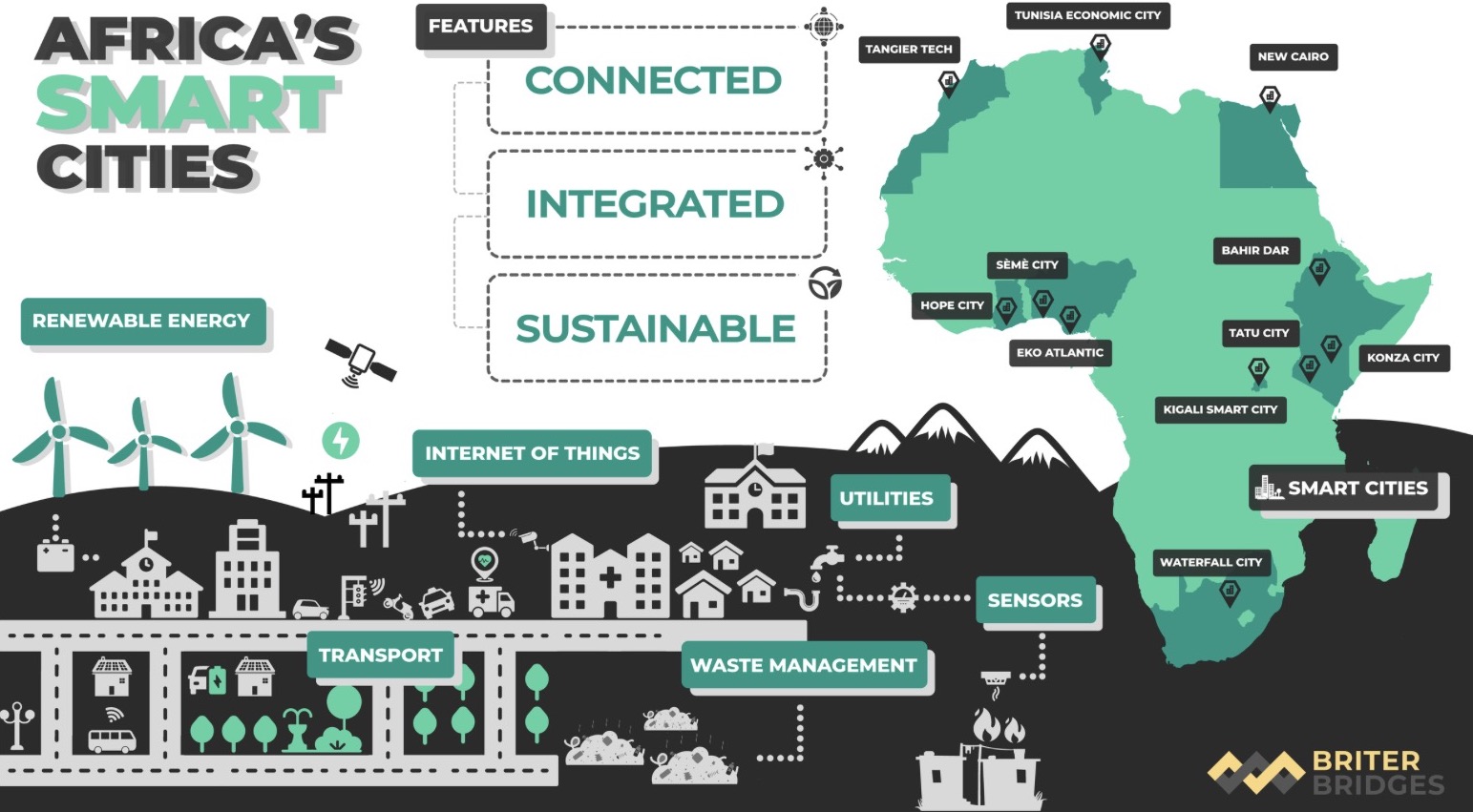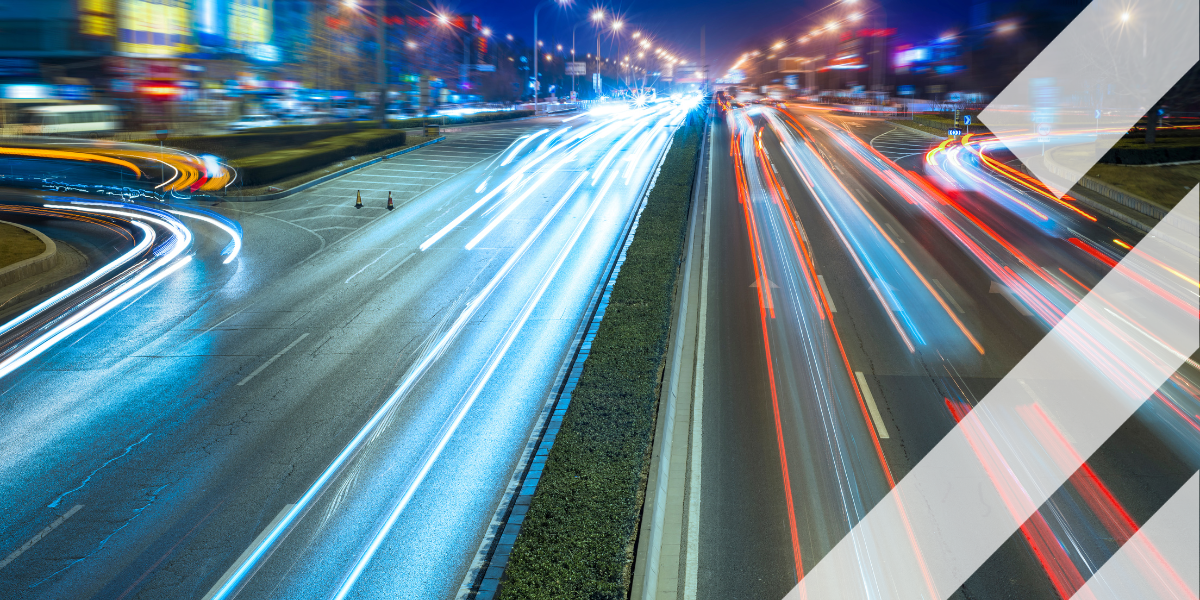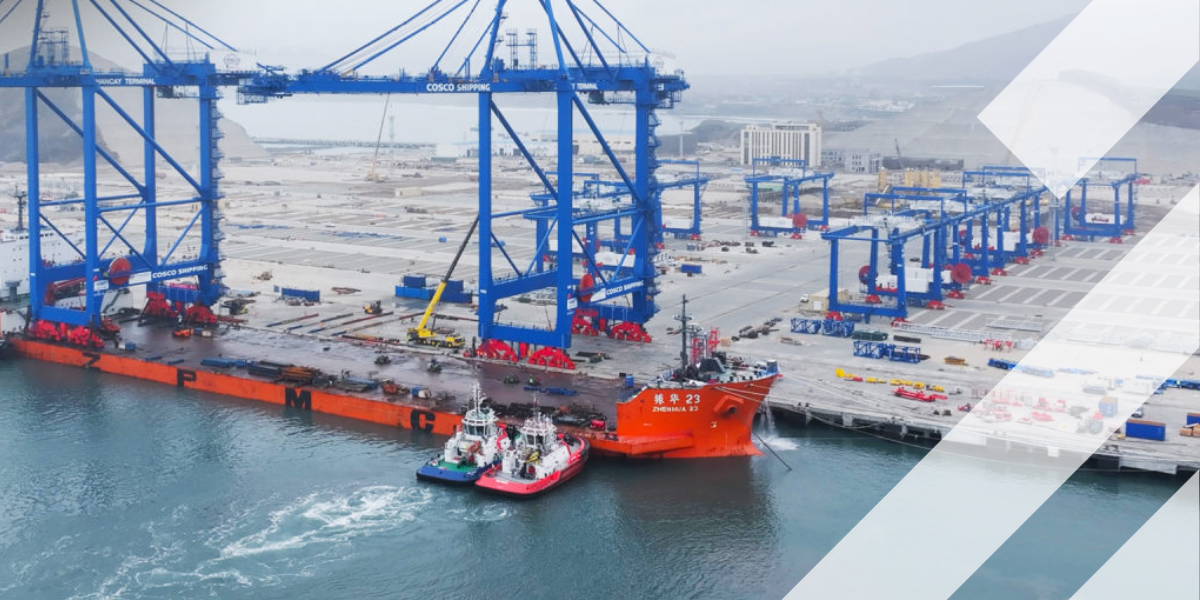In a follow-up to Intertraffic’s feature on Anambra State, Nigeria’s plans to create a smart region, Ambassador Ebube George Ebisike discusses the State of the African Diaspora’s 25 designated Smart Cities that will shape Africa's modernisation.
When the Prime Minister Dr. Louis Georges-Tin of the State of the African Diaspora (SOAD) announced that he had signed a cooperation agreement with the World Fund for Development and Planning (WFDP) it was another step in showcasing the state's quest to make its contribution to shape a modernised Africa thorough the core pillars of building cities with an identity, meeting the Sustainable Development Goals (SDG) and being more technology compliant.
The WFDP is an Inter-Governmental Organisation that monitors the 17 SDGs and focuses on global partnership channels, financial governance and access to technology within the African region.
The fund also supports the implementation of the 2030 Agenda in developing countries through public and private, domestic, and international resources. The Smart Cities that will be established will leave indelible footprints on the continent of Africa and will create a plethora of new cities. The Innovative Transport City in Anambra State, Nigeria; Sherbro Island, Sierra Leone; the City of Pan-African Heroes and the City of Coffee and Chocolate in Ghana; Fish City in Cote d'Ivoire and Future Street Art City in Benin Republic are just a few exciting-sounding examples.
To complete the list there is also Smart City of Justice, Equality, Balance and Harmony to be built in Tanzania; Alkebulan City of Drums, Senegal; Precious Stone City in Ondo State, Nigeria; Smart City in Porto Segurp and two others in Togo including the City of Pan-African Inventors in Ortegaville; Future Smart City Liberia; one in Madagascar; Lion City, Sierra Leone; Moshoeshoe Smart City in Lesotho; the City of Light, Congo; Diamond City in Botswana; Imeko Fabric and Fashion City, Ogun State, Invisible City Tukuruku and Medical City, Badagry in Nigeria; and finally Medical City Kinshasa and Zollywood City in Zambia.
With the increasing need for healthcare and to advance the life expectancy of the continent’s population, there will also be five Medical Smart Cities built in strategic collaboration in Africa.
With the increasing need for healthcare and to advance the life expectancy of the continent’s population, there will also be five Medical Smart Cities built in strategic collaboration in Africa.

PILLARS OF THE COMMUNITY
The SOAD Smart Cities are envisaged to have four core pillars, namely Social Infrastructure, Physical Infrastructure, Institutional Infrastructure (including Governance) and Economic Infrastructure. It is noteworthy to emphasise that the epicentre of attention for each of these pillars is the citizen (or ‘smart city dwellers’). These ambitious developments are a large part of the SOAD’s drive to bring better environmental- and income-leveraged living standards to Africa, a continent that houses the fastest-growing and youngest population in the world. By 2050, Africa's population will be around 2.5 billion inhabitants
There is a need to meet the requirements of the growing urban space. Accordingly the SOAD’s Prime Minister Dr. Louis Georges-Tin and Her Excellency the Vice Prime Minister Keturah Amoako and cabinet, working alongside infrastructure and financing partners such as the UK’s Zienergy, have developed a template from research and meticulous study.
A strategic document highlights that the 25 Smart Cities framework is based on the principles of smart physical, social, institutional and economic infrastructure.
The strategic document highlights that the Smart Cities framework is based on the principles of smart (intelligent) physical, social, institutional and economic infrastructure. It is expected that such Smart Cities will organically generate options for the common African citizen who is core to the developmental workforce of the continent.
In this context the conditionalities and reference points of competitiveness, underpin a city’s ability to create employment opportunities and attract investment. The ease of doing business is a paramount factor and the quality of life it offers determines its level of competitiveness.
In this context the conditionalities and reference points of competitiveness, underpin a city’s ability to create employment opportunities and attract investment.
THE X FACTOR
The other vital factor here is Sustainability and this includes social sustainability, environmental sustainability and financial sustainability. Another factor is Quality of Life, which includes safety and security, inclusiveness, entertainment, ease of seeking and obtaining public services, cost-efficient healthcare, quality education and opportunities for participation in the governance ecosystem.
The SOAD vision for Smart Cities in Africa and Diaspora continue to look critically at the instruments facilitating development of a Smart City, wherever they are to be established and these include:
1. Clean Technologies Usage: There is a need to promote the usage of clean technologies that harness and integrate renewable materials, such as the application of next generation composite building materials and energy-efficient sources that have a smaller environmental footprint and Mobility as a Service offerings.
2. The Use of ICT: The extensive use of ICT is a must. Most services will need to be ICT-enabled and the extensive use of ICT with privacy at the heart of the system enables services to be soundly deployed and communications positioned with a reliable backbone.
3. Private Sector Participation: The Public-Private Partnership (PPP) is key and allows the Government to tap into the private sector’s capacity to innovate unhindered. Once there is more involvement from the private sector in the delivery of services within the Smart City there is likely to be another positive instrument for the citizen as it enables
higher levels of efficiency in all spheres of liveability across the smart environment.
There is a need to promote the usage of clean technologies that harness and integrate renewable materials, such as the application of next generation composite building materials and energy-efficient source.
There are clear motives of higher growth potential as SOAD partners with the private sector. The 25 Smart Cities are envisaged to take advantage of the above-mentioned facilities and capabilities in a structured manner that draws upon Citizen participation. Citizen Consultation in particular, together with the application of a transparent system in which the African and Diaspora citizens can rate different services, is hugely important and beneficial.
It is envisaged that the 25 Smart Cities will take advantage of the new facilities and capabilities in a structured manner that draws upon Citizen participation.
This is yet another instrumental uptick for improving the performance of the smart city. By making these ratings openly available (via Open Source data and driven by blockchain) for public scrutiny, SOAD looks at creating a powerful incentive for improved performance and thereby disincentivizing poor performance.
NET GAINS
The Africa International Hosting Show is coming up from 24-27 July 2023 in Abuja, Nigeria. It's the largest housing and construction event in Africa, and SOAD will have representation at the gathering which will showcase and discuss all aspects of housing, city development, policy, Internet of Things-enabled shelters and new technologies, as well as mobility.
Besides housing, the expansion of the telecommunications space and the influence of such multinational companies are playing a major role in expanding the digital infrastructure across Africa. The rapid growth of mobile technology through these companies is helping to bring Internet access to millions of people across the continent. Furthermore, alongside mobile technology expansion, the hi-tech ecosystem offered by the 25 (and growing) number of SOAD Smart Cities across Africa is scheduled to offer possibilities for green energy, outsourcing and hi-tech manufacturing across the automotive, aeronautics/aerospace industries and other associated sectors.
The State of the African Diaspora is set to have a massively positive impact on the African populace and the world at large.





